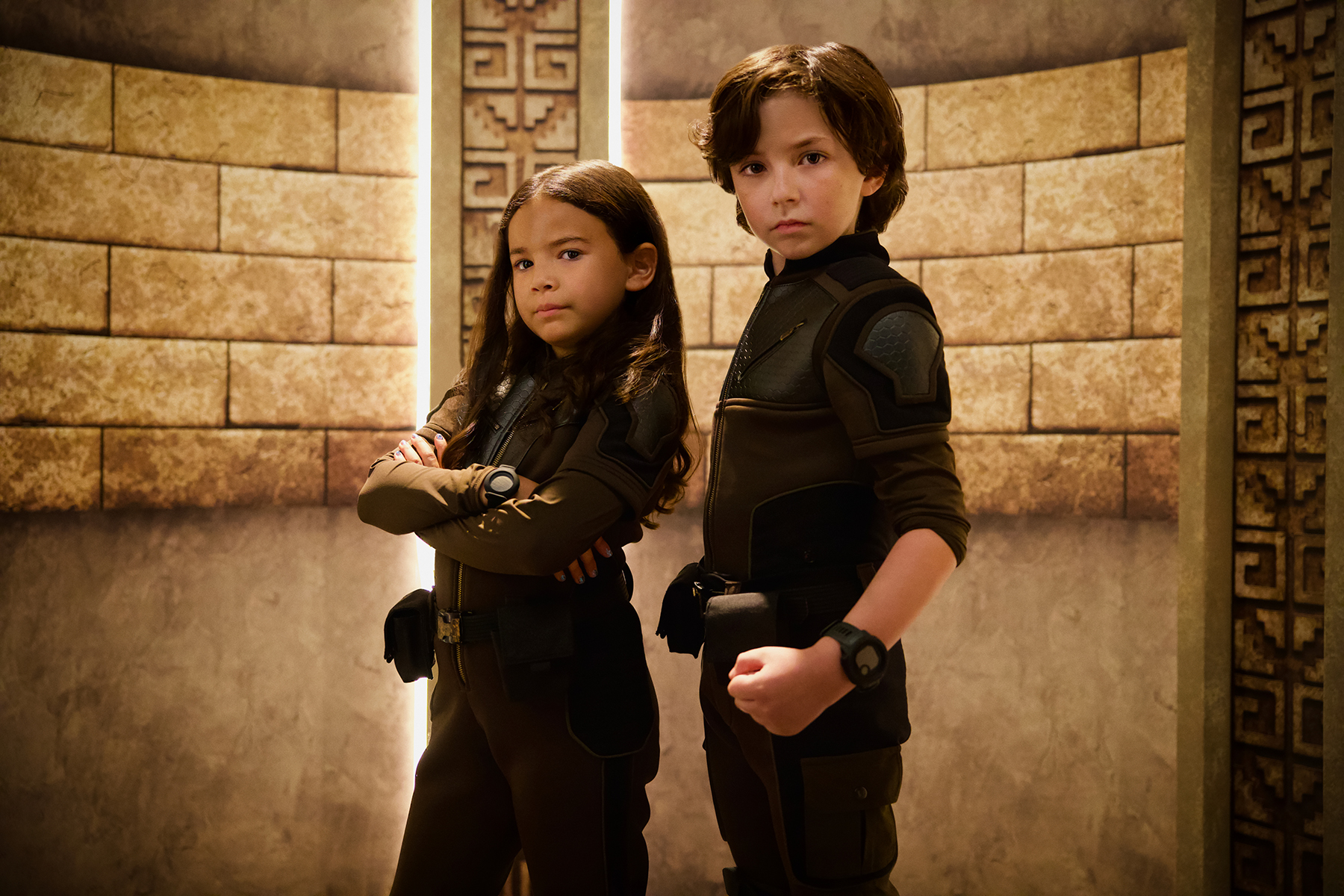It’s been more than 20 years since the first Spy Kids film premiered. Back then, few could have imagined that the Cortez family would power one of the most beloved children’s franchises of the millennium. Thankfully, that’s turned out to be the case and Spy Kids is back. Yes, Hollywood is overflowing with sequels, reboots, and remakes, and versatile, Mexican-American director Robert Rodriguez is getting his slice of that pie by bringing back his best franchise and restarting it with the release of Spy Kids: Armageddon.
This time, we meet a new family of spies: the Tango-Torrez clan. With a similar direction to the first film in the saga, Spy Kids: Armageddon follows the siblings, Patty (Everly Carganilla) and Tony (Connor Esterson), after learning that their parents, Nora (Gina Rodriguez) and Terrence (Zachary Levi), head the world’s top secret agents.
So what’s there to learn this time around? Turns out, a lot! Read on for my top life lessons from Spy Kids: Armageddon and really the franchise at large.
Heroes Come in all Shapes and Sizes
The word “hero” may conjure muscular men in shiny capes and spandex suits. You know, the guys with powers that defy imagination. But of course, not all heroes are genetically enhanced humans. As Christopher Reeves, our iconic Superman, put it “a hero is an ordinary individual who finds the strength to persevere and endure in spite of overwhelming obstacles.”
Such is the case of Spy Kids: Armageddon – in this story, the heroes are ordinary people, ordinary children, who figure out extraordinary ways of helping others.
So how do Patty and Tony become heroes? Simple, although they have no psychic powers, spidey sense, or superhuman strength, the Tango-Torrez siblings are capable because they are brave, compassionate, and selfless.
Family Secrets Are Dangerous

Like the original film, the reboot of the story is set in Texas where the Tango-Torrez clan leads a typical, quiet life.
Or so it seems. Terrence and Nora are actually keeping a heavy secret. Unbeknownst to their children, they head the ranks of the Organization of Super Spies (OSS), the world’s most powerful spy agency. They are also in possession of the “Armageddon” computer code, which has the dangerous ability to hack into any electronic device on the planet.
OSS agents may often hide their trade for the “welfare of the family,” but they also end up creating a damaging emotional boundary with their children. Soon enough, it’s clear that secrets lead to lies, and that lies often have serious consequences.
Terrance and Nora’s charade gets the whole family embroiled in a larger-than-life technological complot thanks to Tony and Patty accidentally helping the evil video game developer Rey “The King” Kingston (Billy Magnussen) unleash a computer virus that plunges the world into chaos.
The actions and mistakes of the Tango-Torrez clan make it clear that families need to lies can be dangerous and that ending them is often liberating.
Sincerity Always Wins

Spy Kids: Armageddon embraces sincerity, emphasizing how it can foster trust, mutual respect, and loyalty.
After their parents are kidnapped, Patty and Tony decide to stop Rey “The King” Kingston and save the world on their own. Now, it’s their turn to train as spies and go into action. The kids may have inherited their parents’ amazing espionage talents, but the film reflects that they manage to save the day thanks to Patty’s moral compass.
Because, whatever the context, Patty is overly real and sincere. Conversely, Tony is mischievous, given to lying, and doesn’t mind playing dirty. At one point, Patty’s moral integrity inspires her brother to put aside his usual cheating and deception. Even when it seems easier to lie or manipulate, they both decide to be frank and play fair in their endeavors. The little spies start out as antagonistic siblings, but they soon grow to understand and influence each other for the better.
A Little Kindness Goes a Long Way

Above all, the protagonists demonstrate that the most heroic act of all is to be kind to others, whatever the circumstances.
In the third act of the film, we learn that Rey “The King” has a vendetta of sorts against Terrence and Nora. It so happens that years before, the intrepid agents apprehended Kingston’s father, which led the young man to grow up without a family. Blinded by pain and ego, he ends up on the path to villainy.
Another unexpected revelation is that the arch-nemesis of the Tango-Torrez does not use the Armageddon Code for his own benefit. He sincerely believes that he can “save” humanity through his video game system. Ironically, Kingston uses violence in an attempt to achieve peace.
Once the Tango-Torrezes realize the villain’s tragic past, struggles, and motivations, they decide to give him a second chance. Of course Rey “The King” is not a good guy, but the film highlights that a little kindness can go a long way in anyone’s life.
Instead of punishing and imprisoning him, the spy family suggests that Kingston play his own game (designed to transform players into noble individuals) until he becomes a better version of himself.
In its final lesson, Spy Kids: Armageddon encourages people to be kinder, provide second chances, and even seek restorative justice. Now isn’t that a life lesson to celebrate?

